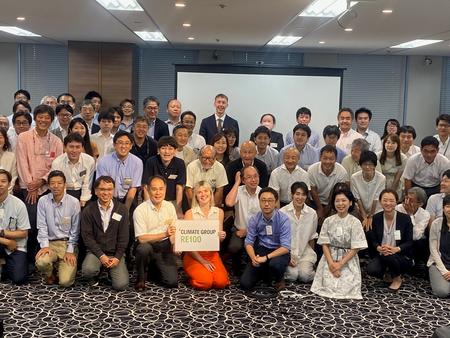Japan has the world's third-largest economy, and is home to 122 million people. The country has a 2050 net zero target, yet solar and wind accounted for just 10% of the nation’s generation mix in 2021.
Japan is the number one market where RE100 members report facing barriers to procuring renewable electricity, with the most common barrier cited as high cost/limited supply. Members are sourcing only 25% of their electricity from renewables in Japan, compared to the global average of 50%.
In Japan, we work in collaboration with our local partner, JCLP.

Recent policy updates
Published in December 2023, this report looks at common policy barriers that are hampering the rollout of renewables in some of the world’s biggest economies, including Japan. The barriers identified in this report fall under three common themes, the availability of renewable electricity, the accessibility of this electricity for corporate use, and the affordability of renewable electricity. The report provides recommendations that would break down these barriers, enabling countries to seize the economic opportunities of the energy transition.
In this letter from April 2023, RE100 called on Japan to lead the world by ensuring it, and the G7, commits to achieving a fully decarbonised power sector by 2035. A Japanese version is also available.
Previous policy successes
This report from September 2022 by RE100 looks into the relationship between high electricity consuming countries in the G20, and the pace of progress in renewable electricity deployment, corporate procurement and investment opportunities – including how the Japanese government has not considered how to fully retire its domestic coal use.
In a 2021 letter, RE100 members called on policymakers to set a new ambitious energy goal, increasing Japan’s renewable energy target ahead of COP26 to 50%. Japan subsequently boosted its 2030 renewables target.
In early 2020, RE100 was recognised in Japan’s COVID-19 economic stimulus package. The growing demand for renewable electricity from our members was cited as a reason for allocating almost ¥5 billion (US$50 million) to help develop onsite renewables through corporate power purchase agreements (PPAs).
You can read our 2020 Japan Market Briefing in English or Japanese.
To speak to our team about getting involved in our policy work in Japan, please contact us.
